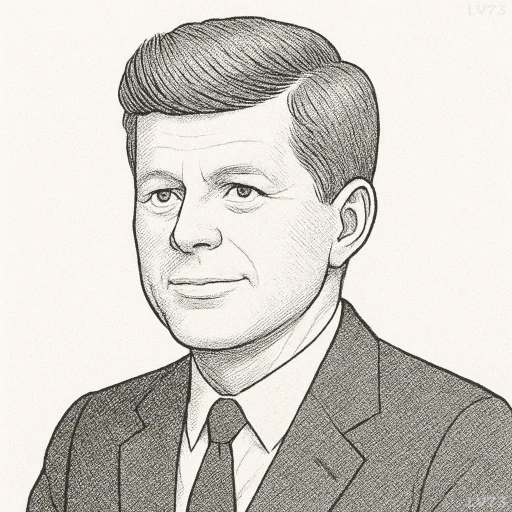“Let us not seek the Republican answer or the Democratic answer, but the right answer. Let us not seek to fix the blame for the past. Let us accept our own responsibility for the future.”

- May 29, 1917 – November 22, 1963
- American
- Politician
table of contents
Quote
“Let us not seek the Republican answer or the Democratic answer, but the right answer. Let us not seek to fix the blame for the past. Let us accept our own responsibility for the future.”
Explanation
In this statement, John F. Kennedy calls for a shift in political mindset, urging both leaders and citizens to focus on solutions rather than partisan division. He emphasizes that the goal should not be to champion the “Republican answer” or the “Democratic answer”—in other words, not to be bound by party lines—but to find the right answer to the nation’s problems. This is a plea for unity and pragmatism, where the welfare of the nation takes precedence over political allegiance or historical grievances. The phrase “Let us accept our own responsibility for the future” reinforces the idea that while we cannot change the past, we can still shape the future through collective action and shared responsibility.
Kennedy’s words reflect his belief in the importance of bipartisanship and the need for leaders to work together toward common goals, particularly in a time of great national challenges like the Cold War, the space race, and the civil rights movement. His call to move beyond political partisanship was meant to inspire a sense of national unity in tackling difficult issues. At a time when America was deeply divided over issues like civil rights and the Vietnam War, Kennedy sought to encourage a more inclusive approach to governance, one where ideas and solutions were evaluated on their merits, not their partisan origin.
This message is still highly relevant in contemporary politics, where partisanship often hampers progress and meaningful dialogue. In an era of increasing polarization, Kennedy’s call to move beyond finger-pointing and political tribalism is a reminder that real progress requires collaboration and a focus on what is best for the nation as a whole, not just one political faction. His insistence on accepting responsibility for the future encourages individuals and leaders alike to look ahead, make decisions based on reason and common sense, and work together to address the pressing challenges of the present and future. In this way, Kennedy’s words continue to serve as a timeless call for responsible leadership and national unity.
Would you like to share your impressions or related stories about this quote in the comments section?

